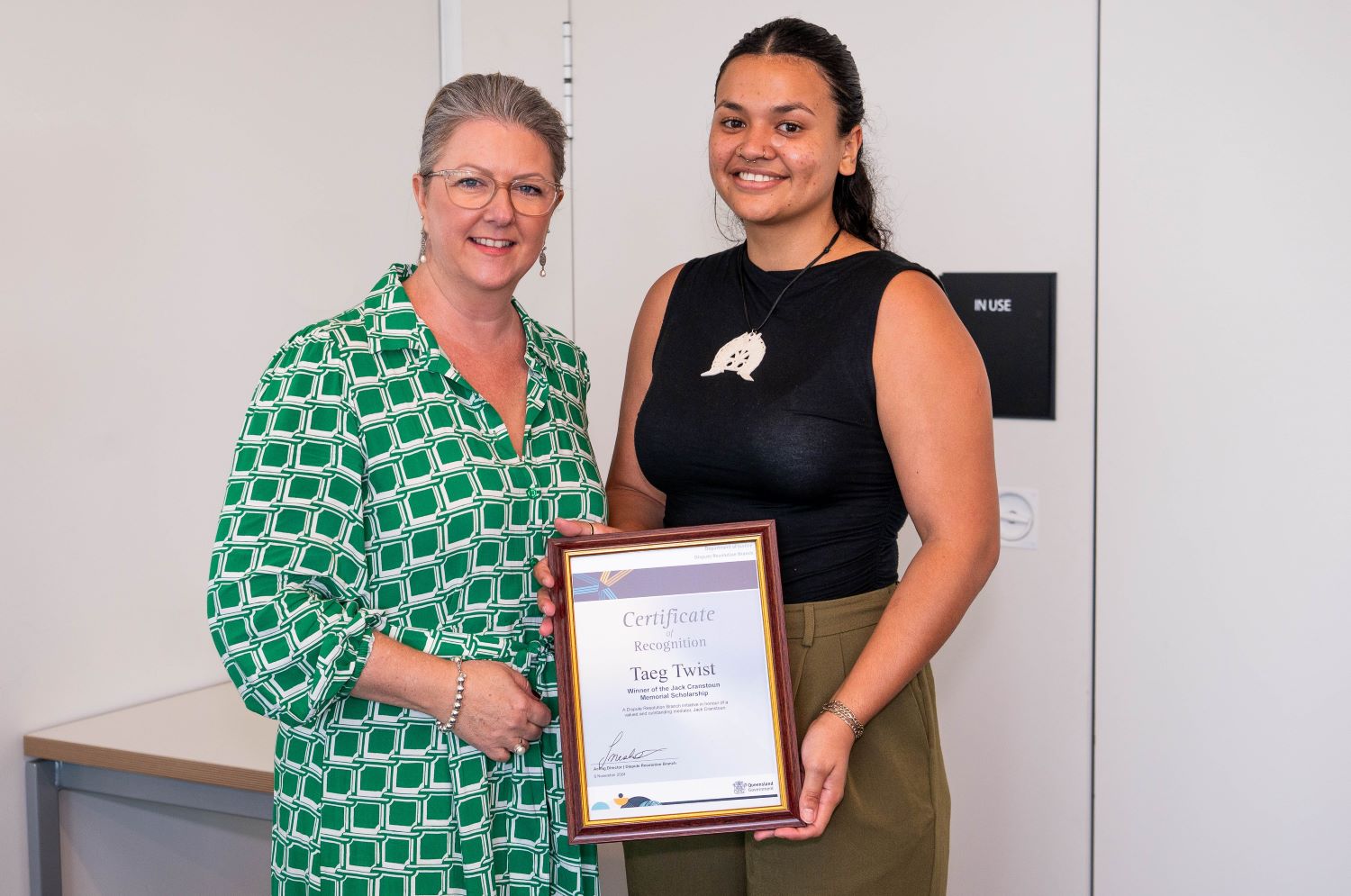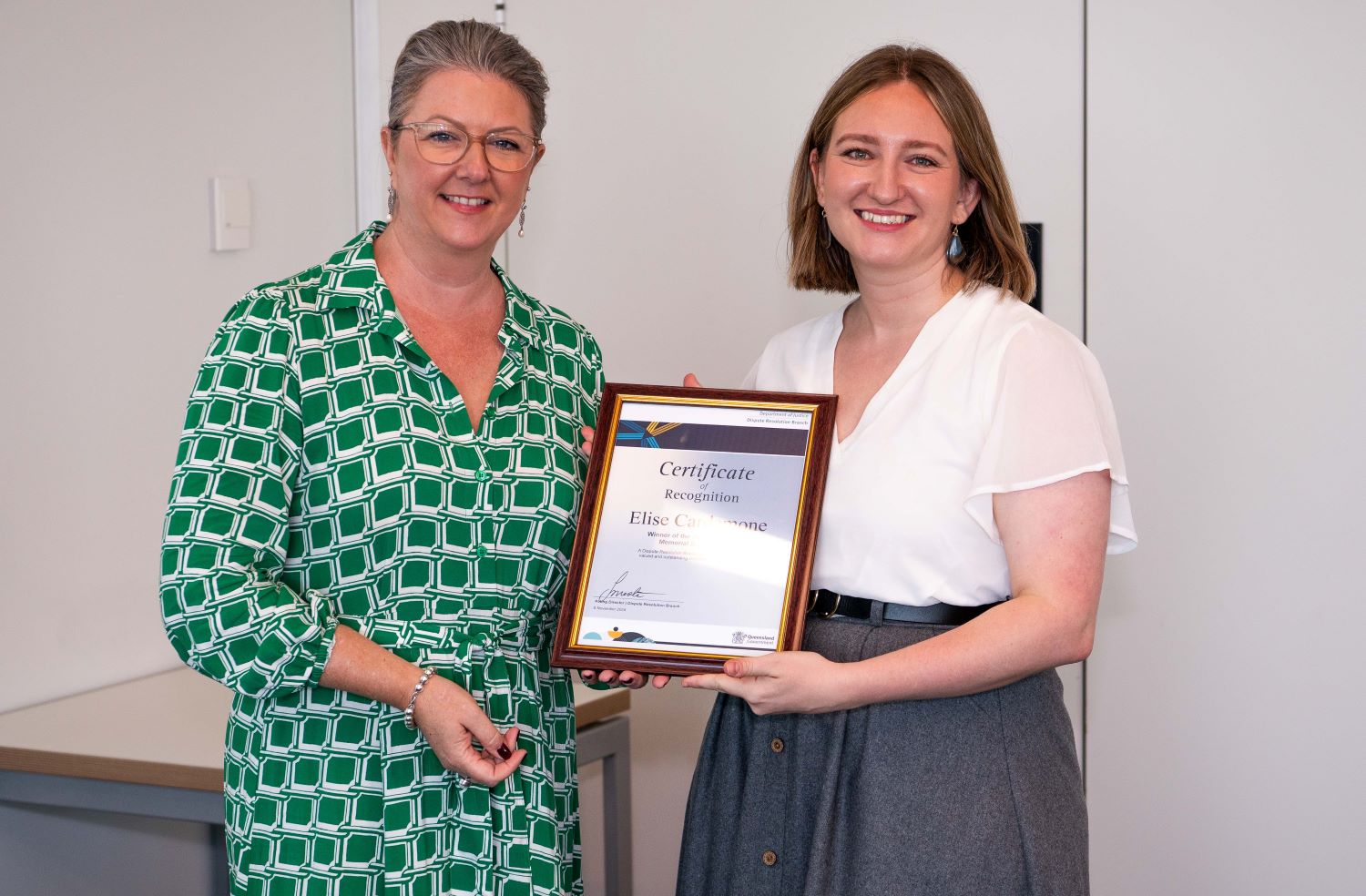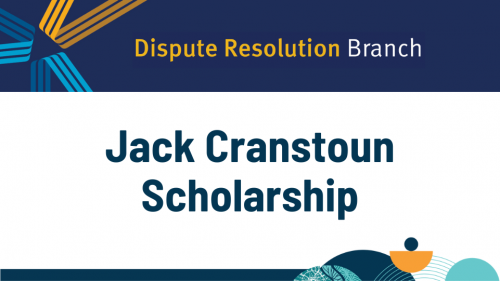Jack Cranstoun scholarship
In 2015, the Dispute Resolution Branch introduced a scholarship in memory of a much-loved member of their team, Jack Cranstoun.
The Jack Cranstoun Scholarship gives the opportunity to be trained in mediation and assessed under the Australian mediator and dispute resolution accreditation standards (AMDRAS).
You can apply if you are aged 21 to 35 and you:
- live in Queensland (at the time you apply)
- are an Australian citizen, a permanent resident, or have a valid visa with work rights.
The scholarship provides training in 2 courses:
2025 program
Applications for the 2025 Jack Cranstoun scholarship are now closed.
Short-listed candidates will be invited to a panel interview through Microsoft Teams.
More information
For more information about the scholarship:
- email trainingdrb@justice.qld.gov.au
- call (07) 3738 7015
- follow us on LinkedIn.
Previous recipients
The 2024 recipients were announced on 6 November. Congratulations to:
- Tunde Ogunyale
- Nicholas Delany
- Elise Cardamone
- Taeg Twist
- Kia Thomas-Laughlin
We awarded an additional scholarship this year due to a draw between 2 outstanding applicants.
The 2023 recipients were announced on 4 October. Congratulations to:
- Jenaya Ward
- Jason Wang
- Farhan Khudir
- Micaela Diaz
The 2022 recipients were announced on 28 September. Congratulations to:
- Amanda Martin
- Nana Makatema
- Nadia Saeed
- Letticia Gooroovadoo
- Gemma Sampson.
We awarded an additional scholarship this year due to a draw between 2 outstanding applicants from culturally and linguistically diverse backgrounds.
Hear from some previous recipients
Taeg Twist: 2024 First Nations Peoples recipient

“I applied [for the scholarship] because I saw it as a rare and powerful opportunity to strengthen my skills in mediation and dispute resolution while staying deeply connected to my community work. I wanted to explore the ways these tools could be adapted and grounded in Indigenous approaches to conflict management, ones that prioritise relationships, truth-telling and cultural safety.
“The scholarship expanded my ability to advocate effectively in a broader range of environments, from grassroots community meetings to more formal high-level discussions. The scholarship gave me the skills and confidence to navigate and facilitate complex conversations in a way that allows for all parties to be recognised.”
Elise Cardamone: 2024 General (open category) recipient

“I saw the scholarship as a rare chance to gain formal mediation skills—tools that can make a real difference in both my work and my community. I was drawn to the idea of creating spaces where people feel heard, respected, and empowered to move forward.
“Since receiving the scholarship, I’ve been accepted into the Master of Clinical Psychology and Clinical Neuropsychology at UQ. The training has already shaped how I approach difficult conversations with clients, colleagues, and students. It’s given me the confidence to step into challenging situations with a clear process and a focus on constructive outcomes.
“These skills will be invaluable as I move forward in my clinical work, and I also see opportunities to offer mediation in community contexts alongside my psychology practice.”
Recognised provider
The Dispute Resolution Branch is a recognised training and accreditation provider under AMDRAS.
